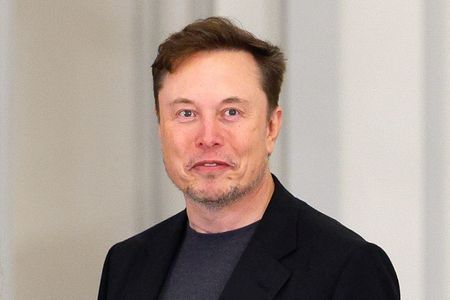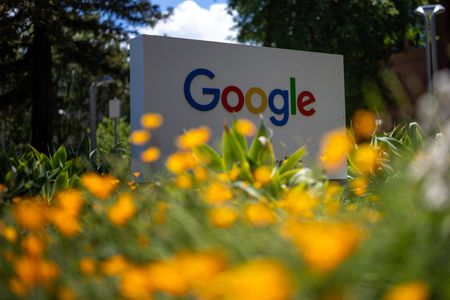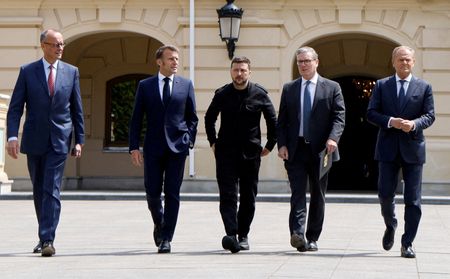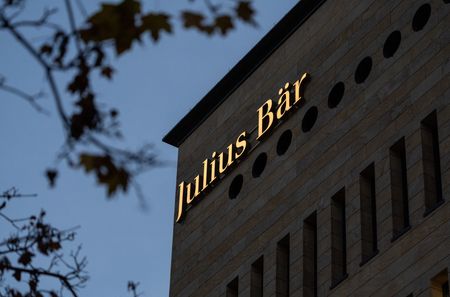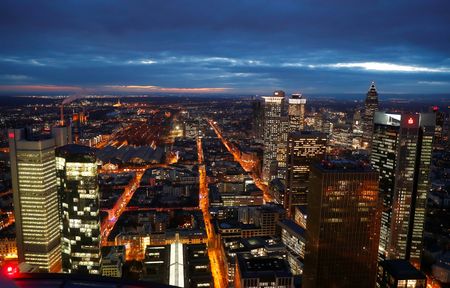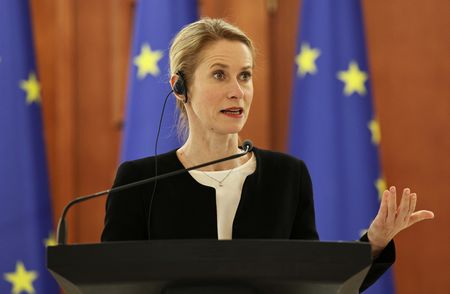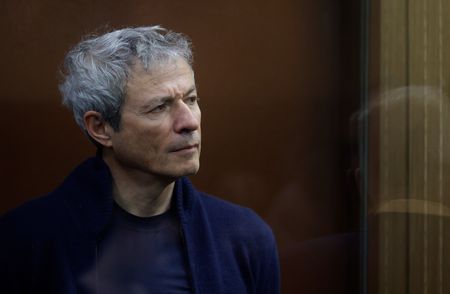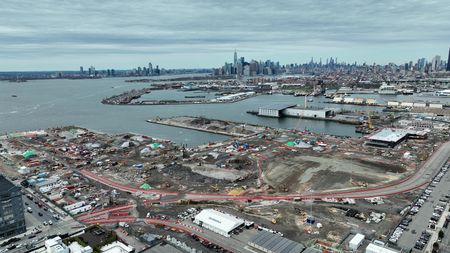By Andrew Mills, Nandita Bose and Akash Sriram
DOHA/WASHINGTON (Reuters) -Elon Musk, who spent nearly $300 million to support Donald Trump’s presidential campaign and other Republicans last year, said on Tuesday he plans to cut his political spending significantly.
“I’m going to do a lot less in the future,” Musk said at an economic forum in Qatar. “I think I’ve done enough.”
Musk also said he was committed to staying on as Tesla’s CEO for another five years, aiming to address concerns about balancing his role at the automaker with his involvement in the Trump administration, where he had overseen a massive cost-cutting effort across the federal bureaucracy.
His role as one of Trump’s most prominent backers – enhanced by his ownership of the social media site X – has prompted protests against Tesla, driving down its sales and stock price.
If Musk, the world’s richest person, follows through on his plan to scale back political spending, it could cost Trump and the Republican Party their biggest donor.
The billionaire did not fully close the door to spending on politics down the road, however.
“If I see a reason to do political spending in the future, I will do it,” Musk said.
A White House source played down Musk’s decision, saying he remains “fully committed” to Trump and his party. The source said Musk’s support will continue via multiple channels, including as an adviser, through financial contributions and informal influence within donor networks.
The source said the White House views Musk’s retrenchment as a reasonable response to growing political attacks, adding that the president supports Musk’s decision to rethink how visible a supporter he wants to be.
POWERFUL WHITE HOUSE ADVISER
Musk’s main political spending group, America PAC, declined to comment.
Last year, Musk funnelled hundreds of millions of dollars into Republican-aligned super PACs, funding battleground operations and media campaigns that helped amplify Trump’s message.
He also spent more than $20 million this spring to back the conservative candidate in a Wisconsin Supreme Court race, helping to turn it into the most expensive judicial contest in U.S. history. But the liberal candidate won handily in an election seen as an early referendum on Trump’s second term.
Musk’s retreat may force Republicans to lean more on traditional mega-donors and ramp up grassroots fundraising ahead of next year’s congressional elections.
“Could it have an impact? Maybe, but it may not because there are lots of other places to raise money,” said Ron Bonjean, a veteran Republican strategist in Washington. “Musk made it easier. But now that Trump is president, he’s the fundraiser in chief.”
After Trump’s inauguration in January, Musk quickly emerged as a powerful force in the White House.
He led the so-called Department of Government Efficiency, which has sought to eliminate tens of thousands of jobs and cancel billions of dollars in contracts and grants, including the vast majority of U.S. foreign aid, in an often-chaotic manner.
But his political views have triggered waves of protests against Tesla in the U.S. and Europe, leading to a slump in sales. Some investors have also been concerned about the lack of time he has been spending at Tesla.
Looking to ease those worries, Musk told investors last month he would reduce his time with DOGE to a day or two a week from May.
Public views on Musk in the United States are sharply divided along partisan lines, with most Republicans saying they have a favorable view of the tech mogul and an overwhelming share of Democrats saying the opposite, according to Reuters/Ipsos polls. Overall, 58% of respondents in a poll conducted May 12-13 said they had an unfavorable view of Musk, compared to 39% who had a favorable view of him.
A person with knowledge of Musk’s efforts in the Trump administration described him to Reuters in April as “exhausted and exasperated,” especially by the blowback against his companies.
TESLA STOCK DOWN THIS YEAR
On Tuesday, Musk said having “reasonable control” of Tesla was the most important factor in staying on as CEO.
He said last year he was uncomfortable growing Tesla as an AI and robotics leader without having 25% voting control.
Tesla shares had briefly risen 3.3% on the comments but later pared gains to trade up about 1%. The stock is down about 20% since Trump’s inauguration, after initially surging on optimism that the administration would clear the regulatory path to deploying robotaxis, which Musk has pegged as the main driver of Tesla’s market value.
Earlier this month, Tesla chair Robyn Denholm denied a Wall Street Journal report that said board members had reached out to several executive search firms to find a replacement for Musk.
Musk said at the event Tesla had already turned around sales, and demand was strong in regions apart from Europe.
(Reporting by Andrew Mills and Federico Maccioni in Doha, Akash Sriram and Aditya Soni in Bengaluru, Nandita Bose and Jason Lange in Washington and Alexandra Ulmer in San Francisco; Writing by Joseph Ax, Elwely Elwelly and Michael Georgy; Editing by Hugh Lawson, Shinjini Ganguli, Ross Colvin and Deepa Babington)

